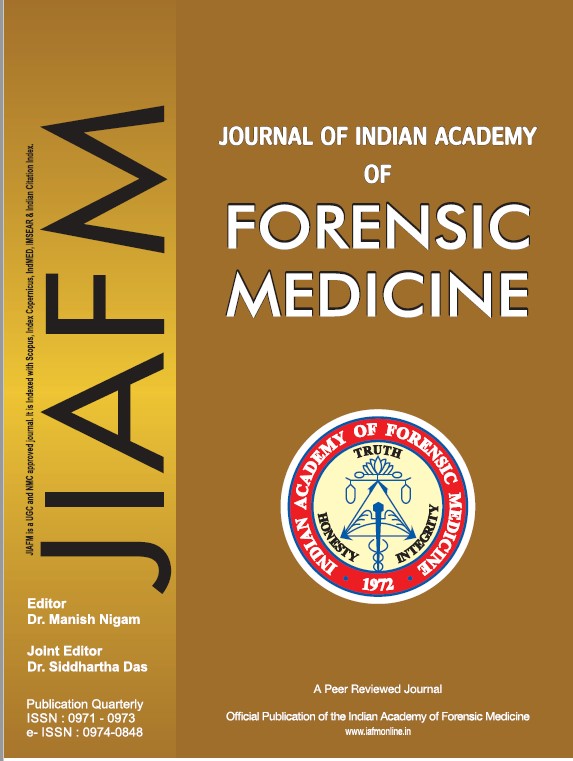An Epidemiological Study of Acute Head Injury and It’s Evaluation by CT scan
DOI:
https://doi.org/10.48165/Keywords:
CT scan, Head Injury, Extradural Hematoma, Fracture skullAbstract
Head injury is a morbid state resulting from gross subtle structural changes in the scalp. Skull and/or the contents of the skull produce by mechanical forces. The application of blunt force to the head may result injury to the contents of the skull either alone or with a fracture skull. In six month study period total 64 cases of head Injuries were admitted in B.C. Roy Hospital. Total number of Male patients admitted in Hospital due to head Injuries were 46(71.87 %) and female were (28.12%). 32.81% the victims aged between 21 to 30 years. In present series of study R.T.A. was most common cause of Head Injury 85.95%. Most common CT finding was Skull fracture 34.37% followed by cerebral contusion 32.81%, extradural hematoma 25% and 21.87 % subarachnoid hemorrhage. CT scan was the main tool for the imaging the Skull and its contents.
Downloads
References
Modis Medical Jurisprudence and Toxicology-33rd ed. p 795.
Sharma BR, Harnish D, Sharma V, VIJ K. Road traffic accident: A
demographic and topographic analysis Med Sci Law, 2001; p.266-
Reddy, K.S. N. The essentials of Forensic Medicine and Toxicology
th ed. 2005 p-199.
CM Asaleue et al. The pattern of CT finding in moderate and
severe head injuries west African Journal of Radiology 2005. 12:1
G Mebrahtu, HQ Liu Tsighe. The profile of CT scan finding in
acute head trauma in Orotta hospital JEMA 2007; p. 5-8.
Peter Armstrong. Diagnostic Imaging skull & brain. 5th ed. P. 390-


